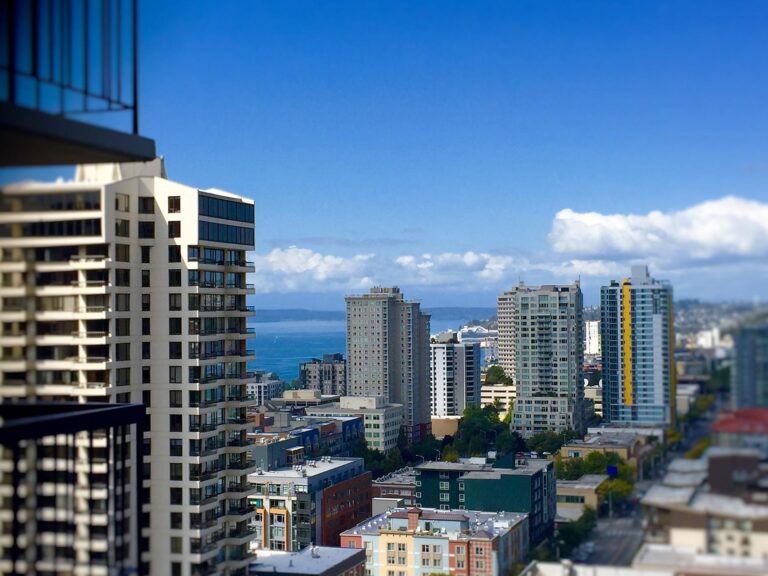The average home in Seattle costs over a million dollars. And now, rising interest rates have made mortgages more expensive. Homebuyers just can’t seem to get a break.
Condominiums used to be a gateway to homeownership. Even if you didn’t have a big nest egg, you could get your foot in the door and own a tiny slice of the “American Dream” while saving up for something bigger.
What happened?
In my neighborhood, there’s a sign in front of a property, announcing the construction of a new apartment building. Someone has graffitied it with a message containing an expletive – it says, “F_____ condos.”
But the building under construction isn’t condos, it’s apartments. Actual condos that you can buy are much harder to find.
Here are some other reasons the Washington Center for Real Estate Research’s James Young says condos are rare and expensive:
Washington State’s Growth Management Act, while successfully protecting farms and forests around the Seattle metro area, prevents sprawl. Young said many cities use cheap suburban housing to meet market demand quickly (we’ll save arguments about the long-term costs of sprawl for another day). In those cities, the housing market is highly elastic and can respond to changes in demand very quickly.
Because this region cannot sprawl, it must grow denser to meet demand. Young said it’s not possible to build densely enough to meet demand by building only townhomes where single-family homes used to be. Greater density is needed — and yet with greater density comes greater risk to the developer.
The inevitable result of our failure to build densely enough is gentrification, Young says. Here’s how this works: When people cannot find affordable homes to buy, they stay in the rental market, which drives up rents further. Because after all, if someone had a little money socked away to buy, they could likely afford rent increases. Meanwhile, single-family homes, increasingly a scarce resource as the population grows and the stock of single-family homes shrinks, dramatically increase in value because some people are willing to pay for that lifestyle.
Seattle and Vancouver, B.C., have very different markets, so it’s not always useful for Seattle to try and achieve what Vancouver has. For example, in the U.S., institutional investors, such as Real Estate Investment Trusts, invest heavily in apartment buildings, but do not like condos as an investment. The reason is that apartments generate a trickle of reliable income, whereas with condos, the profit comes all at once, at the time of sale. This creates administrative challenges for these funds, because by law, they have to return large profits to investors as dividends unless the funds can be quickly reinvested.
In contrast, Vancouver, B.C., does not have large institutional investors like this. Large apartment complexes therefore have trouble getting funding there, Young explained. In the absence of an adequate supply of apartments, Vancouver is dominated by condos, which cater to individual buyers looking for condos as investments to rent out. These patterns have made Vancouver one of the most expensive places to live in the world, Young said.
Continue reading at KUOW.
